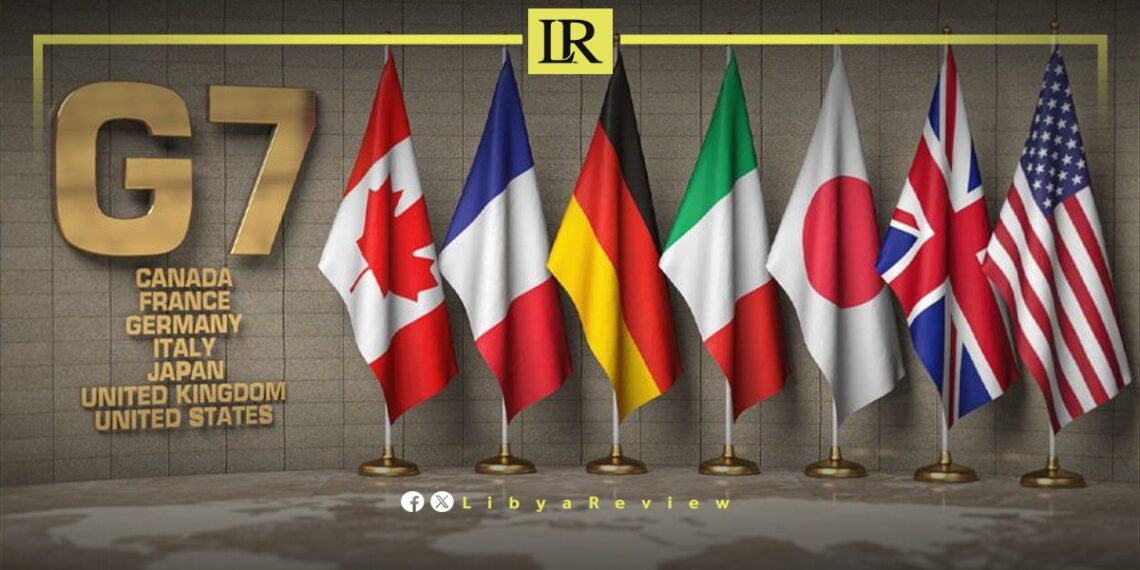On Saturday, the Group of Seven (G7) called on Libyan parties to overcome the current political stalemate by engaging in meaningful dialogue conducted in good faith and without preconditions.
In a press statement, the G7 emphasized that an inclusive, Libyan-led political process facilitated by the United Nations remains the only viable path toward free and fair presidential and parliamentary elections.
The G7 reaffirmed its commitment to Libya’s stability, independence, territorial integrity, and national unity, including countering foreign interference. The group also urged the UN Secretary-General to appoint a new special representative without delay.
The 50th G7 Summit, comprising the United States, Germany, France, the United Kingdom, Italy, Canada, and Japan, commenced on Thursday. This marks the seventh time Italy has hosted the summit, with previous events held in Venice in 1980 and Taormina in 2017.
Libya has been mired in political turmoil since the NATO-backed uprising in 2011 that led to the ousting and death of long-time leader Muammar Gaddafi. Since then, the country has been divided, with rival administrations in the east and west, each backed by various militias and international actors.
The most recent attempt to stabilize Libya was the establishment of a unified government through a UN-facilitated process, culminating in the formation of the Government of National Unity (GNU) in March 2021.
However, the GNU has struggled to assert its authority across the country, and scheduled elections in December 2021 were postponed due to disagreements over the legal framework and the eligibility of candidates.
The G7’s call for overcoming political deadlock comes at a critical time. The group emphasized the necessity for a UN-facilitated process, underscoring the international community’s role in supporting Libya’s path to stability. The G7’s urging of the UN Secretary-General to appoint a new special representative aims to reinvigorate the stalled political process.


